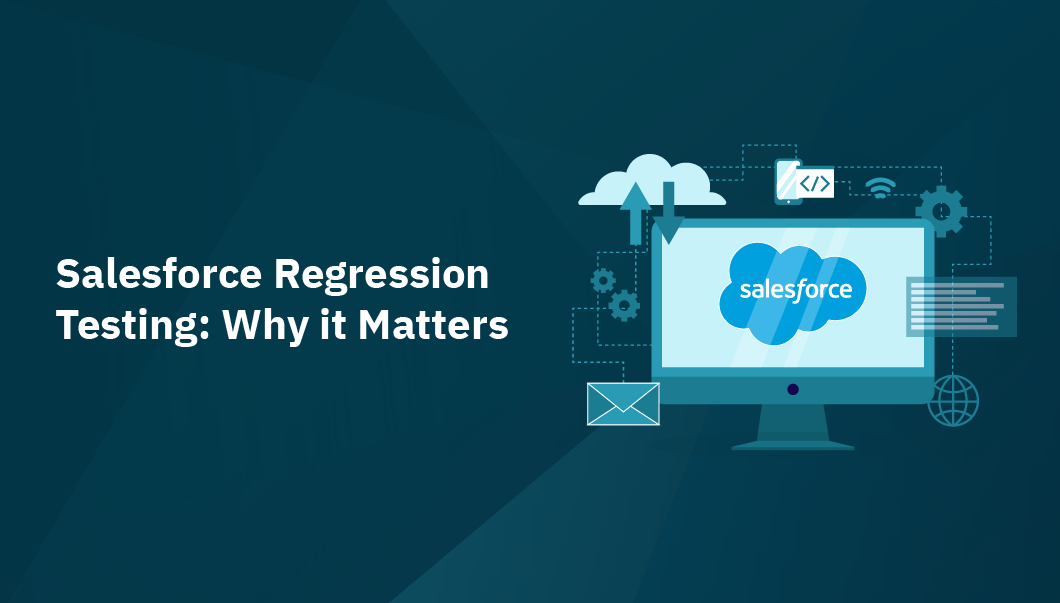Salesforce regression testing is the most popular in the CRM world. It also enables businesses to be flexible and more customer oriented. However, the dependency on this manual regression testing can hinder the productivity of the company’s Salesforce consequence, and the procedures team can end up creating a massive bottleneck.
One of the greatest advantages of a custom Salesforce environment is that one can make rapid changes. But at the exact time, enterprises must ensure that periodic modifications and updates are unable to break their system. Therefore, testing must be fast enough to ensure accurate and quick deployments. Since the Salesforce platform enables its admins and developers to quickly produce and release apps, embracing Salesforce automated regression testing helps compress the time required for application expansion and testing.
Importance of Regression Testing
Regression testing refers to the testing of software and modifications to confirm they do not introduce new flaws or break current functionality. It is vital to guarantee that the latest changes don’t disrupt existing workflows.
Since Salesforce is regularly refurbished and allows frequent changes. Even for any experienced testers, this exercise is monotonous and often feels like a waste of time.
Testers should conduct regression testing when:
- A Salesforce Seasonal Release Occurs:
Salesforce has three major releases every season: spring, summer, and winter. Salesforce also provides weekly patches to address known subjects. Regression testing helps mitigate business threats associated with these changes and helps concede regulations.
- Change management:
Most Salesforce organizations repeatedly revise their system to comprise new features. Before the implementation process in the production organization, tests can be run after the developments.
- End-to-end integrations:
Salesforce integrates other CRM Sostwares and third-party applications among itself. Regression testing is essential to ensure that these integrations and customizations act as expected after each application change, update, or getaway.
Advantages of Enforcing Automated Salesforce Regression Testing
While most enterprises understand the importance of Salesforce regression testing, thousands of organizations are automating their Salesforce regression testing to save time, money, and effort.
Salesforce automated regression testing supplies businesses with several miracles, including cost lessening from less required labour, shorter test cycle times, and quicker development cycles. Here are some other benefits:
- Quicker feedback and time-to-market:
Automated regression testing allows developers to receive quick feedback, and allows them to fix errors or bugs swiftly. It also allows them to add minimal updates or fixes in their environment, which improves overall team efficiency and reduces the time taken to bring any new product to market.
- Increased consistency:
Salesforce automated regression testing is more trustworthy than manual testing as it needs little human intervention. It means that each cycle will be more reliable and consistent. Test automation also permits the concurrent running of more regression test cases, improving test coverage, and thus decreasing risk.
- People can focus on other things:
Automated Salesforce regression testing enables employees to concentrate on more crucial tasks. Because employees also don’t have to execute or report on them manually, they are freed up for more valuable activities.
Conclusion
Opkey is a test automation platform especially built for packaged applications like Salesforce. Automation tools like Opkey speed up test cycles and tend to improve coverage, helping in reducing costs while decreasing business risk. Opkey seamlessly integrates with Salesforce APIs and examines data flow, business logic, and customization to develop test data immediately.













